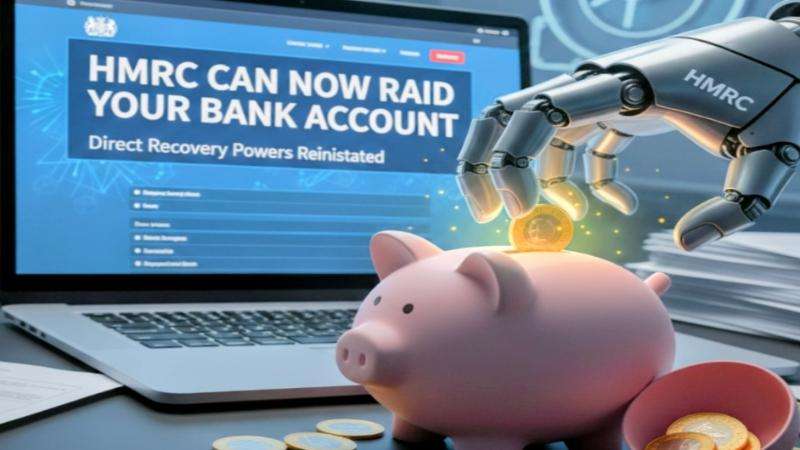Tax inspectors are now able to directly raid the bank accounts of individuals who refuse to pay their tax bills, a move HM Revenue and Customs (HMRC) has confirmed is back in effect. The so-called "direct recovery powers," first established in 2015 but paused during the pandemic, have been relaunched as a "test and learn" phase following a directive from Chancellor Rachel Reeves in her Spring Statement. This measure is intended to tackle the substantial backlog of tax debt, which has grown significantly since the pre-pandemic era, Daily Dazzling Dawn understands.
The strategy allows HMRC to claim funds directly from a debtor's bank account or cash ISA, provided the debt is over £1,000. However, there are safeguards in place. Before any money is taken, a tax agent will make a visit to the taxpayer, and the debtor must be left with a minimum of £5,000 in their accounts. Additionally, the debtor's right to appeal must have expired. Despite these protections, critics view the powers as "draconian" and a dangerous precedent.
The reintroduction of this policy is part of a broader government push to increase its data on taxpayers and improve debt recovery. One new measure involves a recent proposal to provide additional funding to external debt collection agencies from April 2025, which is projected to recover an additional £600m in unpaid taxes by 2029/30. The government is also recruiting more debt and compliance staff.
In addition to these collection methods, new legislation is in the works to strengthen the government's ability to combat fraud and debt. The Public Authorities (Fraud, Error and Recovery) Bill is expected to grant the Department of Work and Pensions (DWP) new powers to inspect the bank accounts of benefit claimants for evidence of fraud. This bill, which passed its second reading in Parliament earlier this year, is underpinned by a principle of fairness and proportionality, with safeguards and independent oversight.
The government's pursuit of tax data extends to other areas as well. As of April 2027, banks will be required to collect National Insurance numbers from new and existing customers with savings accounts. This will simplify the process for HMRC to tax individuals who exceed their personal savings allowance, potentially leading to more workers having their savings tax directly deducted from their paychecks without needing to file a self-assessment.
Public Reactions
The public has reacted to the news with a mix of concern and support. Some expressed worries about the potential for errors in HMRC's system and the security risks associated with giving the government such direct access to personal finances. As one commenter wrote: "Just wait until the HMRC computer system is either hacked or the subject of a cyber-attack. Although on past performance of government systems it could happen that HMRC actually put money into tax payers accounts!!!"
Others, however, believe the measures are necessary to ensure fairness and clamp down on tax evasion. They argue that it's unjust for individuals to avoid their financial obligations when others are paying their share. One comment highlighted this sentiment: "Doesn't seem unfair to me. Tax avoidance costs this country 10x more than housing asylum seekers, as does benefit fraud. We need to clamp down on both these."
There is a sense of frustration that such powers are not also applied more aggressively to large corporations and wealthy individuals who are seen as being able to exploit loopholes to avoid paying their fair share of taxes. This sentiment underscores a public desire for equitable enforcement of tax laws.








.svg)


_7.jpg)